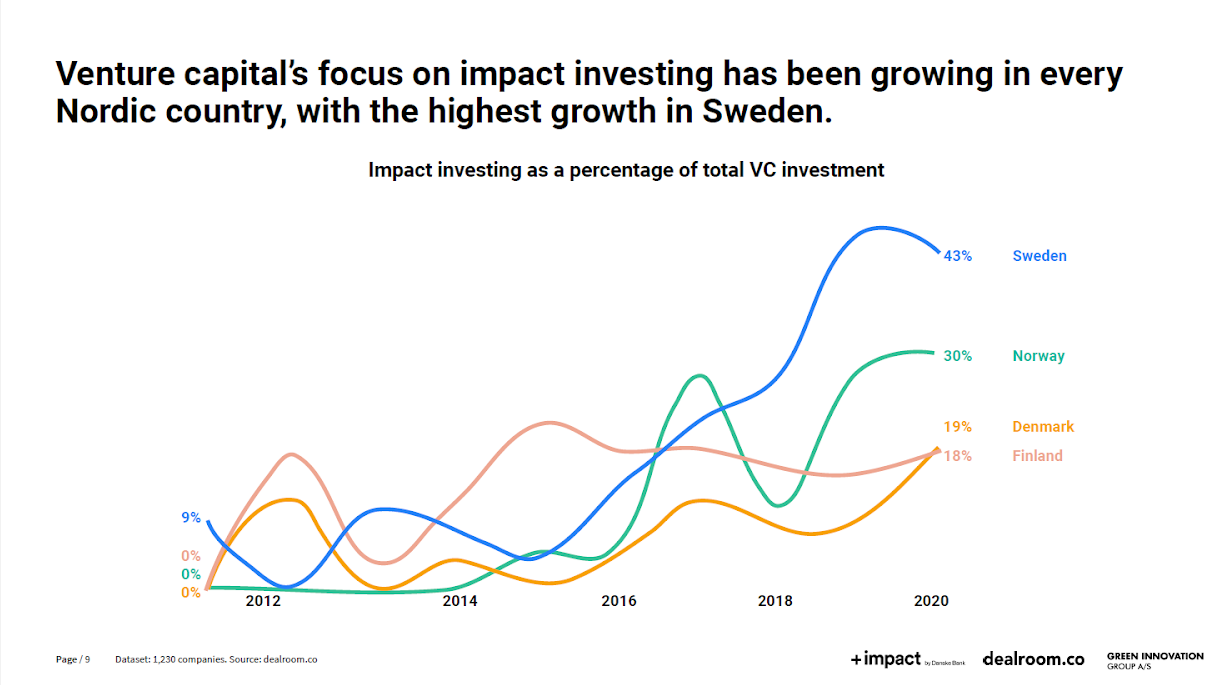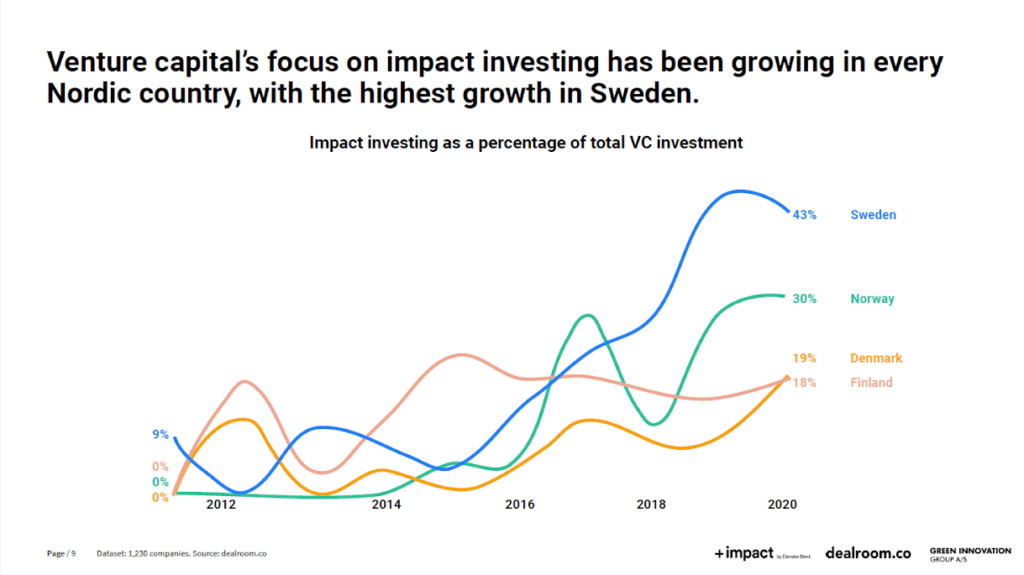
In the past years, sustainability themes such as climate footprint and ESG strategies have risen from the margin into the core of strategic planning. This development has been observed probably faster than anywhere else in startups.
“In our study, we define impact companies as all the companies that have either one or more UN Sustainable Development Goals (SDGs) in the core of their operation. These companies pursue, in addition to their growth targets, to create sustainable growth, improve societies and help reach climate targets”, tells Teppo Havo, Nordic Head of Danske Bank Growth.
One of the most important subjects of analysis in the report is the amount of funding raised by impact startups. From 2015, annual venture capital investments into Nordic impact startups has increased 16-fold – in just five years, totalling 1,6B in 2020.
From an international point of view, Nordic impact startups are going strong: as much as 34 % of VC funding in the Nordics is raised by companies defined as impact startups by the study – the corresponding share being in Europe 17 %, in the US 9 %, and in Asia only 5 %.
“From the Nordic perspective, investors’ interests reflect not only the wider changes in society but also the rapid development of impact businesses. Impact companies today operate more and more in a tech-like manner applying SaaS, subscription, and platform business models. Following their operations and returns is therefore familiar to investors”, Havo says.
In the Nordic comparison, Sweden is the clear forerunner. Battery technology company Northvolt’s massive investment project increases the annual total in 2019 and 2020, but even without it, the Swedish impact startups raise 43 % of all Swedish investments into the segment, Norway following with 30 % share. In both countries, energy technology companies have raised the biggest rounds. In Denmark, the share of impact funding is 19 % and in Finland 18 %.

Impact in the core from the beginning
Although both the amount of impact startups, as well as investments into them have grown at a fast pace, the actual change happens at the grassroots level: companies increasingly consider sustainability aspects from the very beginning, regardless of the sector.
“I think these companies build themselves a significant advantage. This shows especially in the challenges that established companies face when trying to fit their operations into growing ESG demands and customer expectations. Integrating ESG to the core of the business simultaneously with fast growth typical to startups brings possibilities to reach a broader customer target group and more versatile, ESG-aware pricing. A great example of this is Swappie, which has built its business model on sustainability and creates significant environmental impact extending the lifecycle of mobile phones”, Havo adds.
Teppo Havo believes that impact startups and investing are becoming the status quo:
“The question is, in a couple of years, do we need to search for impact startups and impact-focused investors – if the change continues, a prominent share of early-stage companies will use sustainable business models from the beginning, and creating a positive impact is a natural part of investing.”
To learn more about the report and the results, watch the event recording ESG for Business Angels (27.5.2021) on Youtube.
More information:
Teppo Havo
Nordic Head of Danske Bank Growth
teppo.havo@danskebank.fi
Tuuli Saukkkonen
Communications Strategist, FiBAN
tuuli@fiban.org